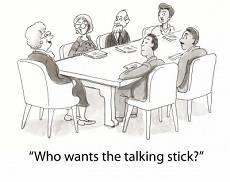October 21, 2013
Job satisfaction keeps employees motivated more than bonuses
 The reported levels of stress felt by banking employees already suggests that generous bonuses do not necessarily equate loving the job. Now a new study published today by the Institute of Leadership & Management (ILM) confirms that across the business sector, the single most effective motivator is job satisfaction (59%), with just 13 per cent saying the prospect of receiving a bonus or other financial incentive motivates them to work harder in their role. The survey of over 1,000 employees found that a competitive salary and a good pension are highly effective motivators (49%) but getting on with colleagues (42%) is nearly as important. The report also highlights how important good managers are to ensuring happy and motivated staff. (more…)
The reported levels of stress felt by banking employees already suggests that generous bonuses do not necessarily equate loving the job. Now a new study published today by the Institute of Leadership & Management (ILM) confirms that across the business sector, the single most effective motivator is job satisfaction (59%), with just 13 per cent saying the prospect of receiving a bonus or other financial incentive motivates them to work harder in their role. The survey of over 1,000 employees found that a competitive salary and a good pension are highly effective motivators (49%) but getting on with colleagues (42%) is nearly as important. The report also highlights how important good managers are to ensuring happy and motivated staff. (more…)





















May 21, 2013
Flexible working boosts employee satisfaction and lowers business costs
by Tim Clapham • Comment, Knowledge, Technology, Workplace
May 2013 played host to Work Wise Week, an initiative from Work Wise UK that aimed to promote and encourage smarter working practices to the benefit of businesses and employees. Cultural, economic and social changes are affecting attitudes to how we balance work and personal lives, and increasingly, mobility and technology is shifting away the need for the traditional 9-5 work patterns, replacing it with more flexible working practices. There are many benefits of flexible working and, as such, we are seeing more businesses starting to understand that forcing employees to work in an office does not guarantee productivity. (more…)